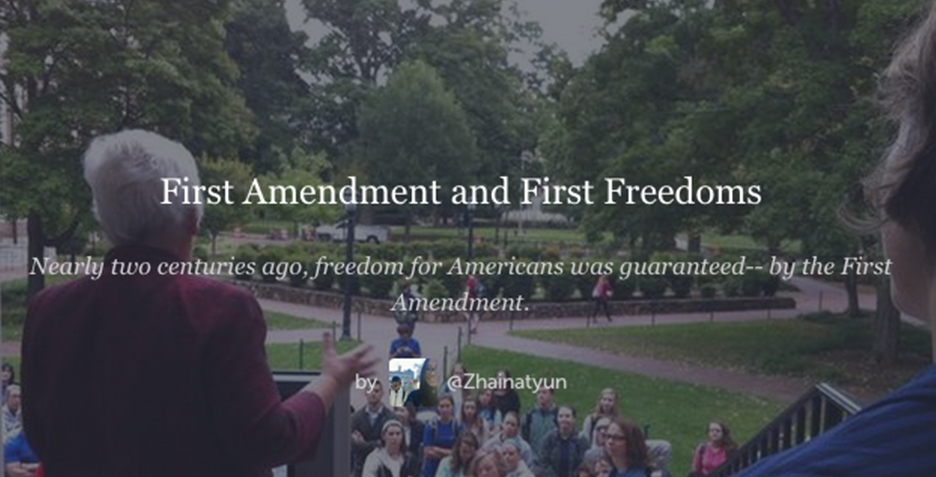UNC will hold its fifth annual First Amendment Day Sept. 24, a celebration of our rights to speak, publish, worship, assemble and protest without government intervention. It’s easy to celebrate free expression. It’s sometimes harder to notice when that freedom is being eroded by the government.
In the year since First Amendment Day 2012, we’ve learned that our First Amendment rights — particularly the freedom of the press — have been compromised in the name of security. In May, the Associated Press and Fox News revealed that the Justice Department had secretly seized phone records and searched emails between reporters and sources in an effort to investigate leaks. In July, New York Times reporter James Risen lost an appeal in federal court challenging a Justice Department subpoena ordering him to testify and reveal his confidential sources in a criminal prosecution. In the July trial of Private First Class Bradley Manning, the government argued that publishing leaks to the general public could constitute “aiding and abetting the enemy” under the Espionage Act. And some reporters say that their ability to promise their sources confidentiality has been jeopardized by the mass surveillance of Americans’ phone call and email data.
This year, First Amendment Day is more than a celebration. It’s a reminder that we have to constantly fight for the free flow of information — in the courts, in newsrooms, in Congress, in our state and at our school.
This year’s keynote address by Bruce Brown, executive director of the Reporters Committee for Freedom of the Press, will explore the Obama Administration’s relationship with the media. “If there was ever any doubt that a war on leaks could not be conducted without a war on the press and the public’s interest in the free flow of information, the government seems to have answered that question for us,” Brown said in a statement in May, following revelations that the Justice Department had executed a search warrant for a Fox News reporter’s emails.
A panel discussion at the UNC School of Law will focus on one possible protection for press freedom: a federal shield law that would protect reporters from having to reveal their confidential sources in a federal investigation or trial. Panelists will discuss the “Free Flow of Information Act” introduced in Congress this year, the definition of a “journalist,” and whether a federal shield law should cover bloggers, citizen journalists, and student reporters.
These are just two of many events addressing the need for education and action around First Amendment rights. For more information, check out the full schedule of events. All events are free and open to the public.
Natasha Duarte is a 2L at the University of North Carolina School of Law and a first-year master’s student at the UNC School of Journalism and Mass Communication.

